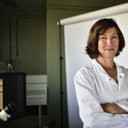
Sophie Allart
Toulouse Institute for Infectious and Inflammatory Diseases
France
EMBL Course
This six-day comprehensive advanced microscopy course focuses on stimulated emission depletion microscopy (STED) and its application to biological questions. Through lectures, tutorials and practical workshops, the course provides in-depth knowledge on all aspects of STED Nanoscopy. It covers the fundamentals of STED microscopy, different technical implementations and has a strong emphasis on sample preparation – including choice of fluorophores and refractive index matching, as well as image acquisition strategies for fixed samples and living cells. Students will have the opportunity for exercises on state-of the art STED microscopes in which they will acquire high quality nanoscopy data. The faculty consists of invited guest researchers, experts from the EMBL and Leica Microsystems.
This course is designed for researchers at the early stages of their career in the life sciences (e.g. pre or postdoctoral level), ideally with access to a STED microscope. The participants should have an immediate need to apply the trained skills for their biological questions. The course is strongly centered on practical aspects of STED microscopy and is therefore especially suited for people who rely on STED nanoscopy for their research.
The course will cover the entire range of skills needed to apply STED nanoscopy in life sciences. The following topics will be covered in lectures, tutorials as well as in practical workshops:
At the end of the course, the participants will be able to design experiments using STED microscopy, prepare high-quality microscopy samples and acquire state-of-the-art nanoscopy images.
This course is organised in cooperation with Leica Microsystems.
“The EMBL super-resolution microscopy course was exactly tailored to my needs and will allow me to get my own experiments running independently. Also, contacts I made will be very useful in the future!” – Paul Markus Müller, Freie Universität Berlin, Germany
“Very well organized and conceived course. Everything is covered here including the
fundamentals, the practical sessions, creative application, innovative development of STED technology. If you are interested in the nanoscopy, I would recommend you to participate in this course.” – Shao-Chun ‘Peggy’ Hsu, National Taiwan University, Taiwan

Toulouse Institute for Infectious and Inflammatory Diseases
France
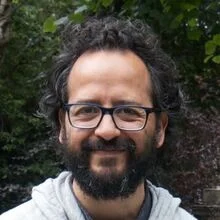
Leica Microsystems CMS GmbH
Germany
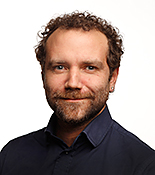
EMBL Heidelberg
Germany
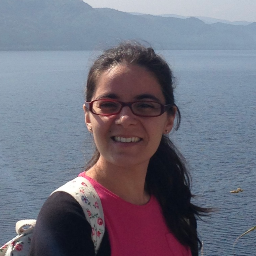
I3S
Portugal
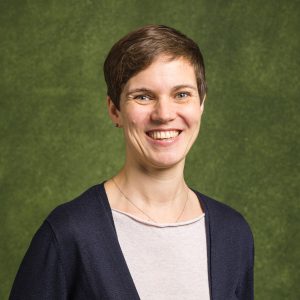
Center for Microscopy and Image Analysis
Switzerland
Institute of Biotechnology CAS, v. v. i., BIOCEV
Czech Republic
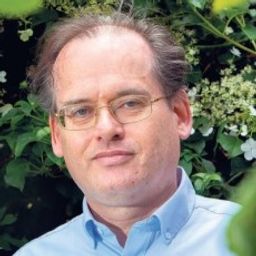
Swammerdam Institute for Life Sciences
The Netherlands
Biomedical Center Ludwig-Maximilians-Universität
Germany
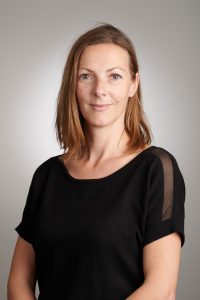
CNRS Bordeaux
France
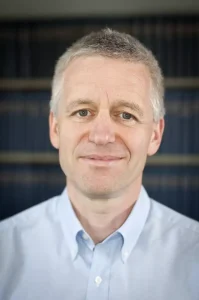
Max Planck Institute for Medical Research
Germany
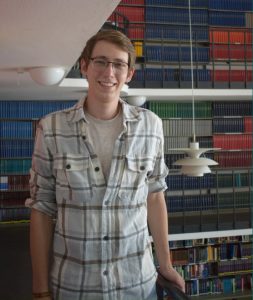
Max Planck Institute for Medical Research
Germany
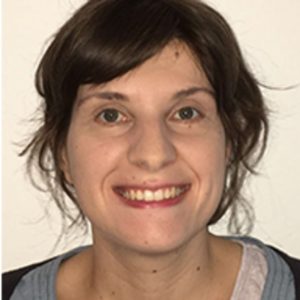
Centre for Integrative Neuroscience (CIN)
Germany
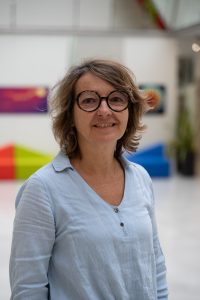
CNRS Bordeaux
France
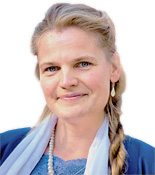
EMBL Heidelberg
Germany
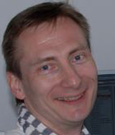
Leica Microsystems CMS GmbH
Germany
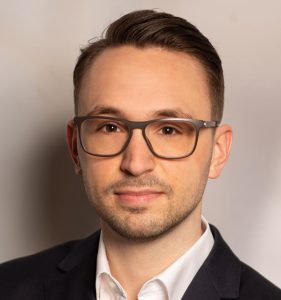
Max Planck Institute for Biophysical Chemistry /
Clinic of Neurology University Medical Center
Germany
EMBL Heidelberg
Germany
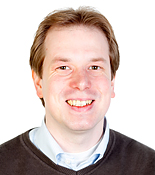
EMBL Heidelberg
Germany
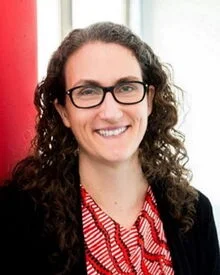
Leica Microsystems CMS GmbH
Germany
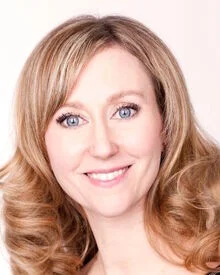
Leica Microsystems CMS GmbH
Germany
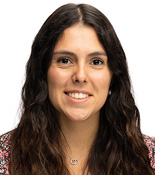
Course and Conference
Officer
EMBL Heidelberg
Germany

Scientific Training
Officer
EMBL Heidelberg
Germany
Are you on social media? Post using #EMBLSuperResolution and don’t forget to tag @EMBLEvents.
| Time (Europe/Berlin) | Speaker | Location |
|---|---|---|
| 08:40 | Bus from hotel to EMBL ATC Entrance | ISG Hotel |
| 08:55 – 09:15 | Registration & Welcome | EMBL Imaging Centre |
| 09:15 – 10:00 | Lecture 1: Overview of Super -resolution Microscopy Techniques Marko Lampe – EMBL Heidelberg, Germany | EMBL Imaging Centre |
| 10:00 – 10:45 | Lecture 2: Introduction to lifetime based STED Microscopy Ulf Schwarz – Leica Microsystems CMS GmbH, Germany | EMBL Imaging Centre |
| 10:45 – 11:00 | Coffee Break | EMBL Imaging Centre |
| 11:00 – 12:15 | Flash Talks 1 | EMBL Imaging Centre |
| 12:15 – 13:15 | Lunch | EMBL Canteen |
| 13:15 – 14:00 | Flash Talks 2 | EMBL Imaging Centre |
| 14:00 – 16:00 | Practical 1 / Group 1: Introduction Single / Multicolor 2D / 3D STED fixed thin samples Jana Döhner – ZMB/UZH Zürich, Switzerland Practical 2 / Group 2: Clearing & Large Volume 3D STED David Unnersjö-Jess – KTH Royal Institute of Technology, Sweden Practical 3 / Group 3: Gentle Live Cell Imaging FPs Luis Alvarez – Leica Microsystems CMS GmbH, Germany Practical 4 / Group 4: TauSTED XTEND optimizing parameters (Computer Training Lab) Ulf Schwarz – Leica Microsystems CMS GmbH, Germany | EMBL Imaging Centre |
| 16:00 – 16:30 | Coffee break | EMBL Imaging Centre |
| 16:30 – 18:30 | Practical 1 / Group 2: Intro Single / Multicolor 2D / 3D STED fixed thin samples Jana Döhner – ZMB/UZH Zürich, Switzerland Practical 2 / Group 3: Clearing & Large Volume 3D STED David Unnersjö-Jess – KTH Royal Institute of Technology, Swed Practical 3 / Group 4: Gentle Live Cell Imaging FPs Luis Alvarez – Leica Microsystems CMS GmbH, Germany Practical 4 / Group 1: TauSTED XTEND optimizing parameters (Computer Training Lab) Ulf Schwarz – Leica Microsystems CMS GmbH, Germany | EMBL Imaging Centre |
| 18:30 – 19:30 | Dinner | EMBL Canteen |
| 19:30 | Departure to Hotel | ATC Entrance |
| Time (Europe/Berlin) | Speaker | Location |
|---|---|---|
| 08:40 | Bus from hotel to EMBL ATC Entrance | ISG Hotel |
| 09:00 – 09:05 | Overview of the day | EMBL Imaging Centre |
| 09:05 – 09:50 | Lecture 3: 2D STED to study the nanoscale organization of an integrin at the CD8+T lymphocyte synapse Sophie Allart – Toulouse Institute for Infectious and Inflammatory Diseases, France | EMBL Imaging Centre |
| 09:50 – 10:35 | Lecture 4: TBC Kai Johnson – Max Planck Institute for Medical Research, Germany | EMBL Imaging Centre |
| 10:35 – 10:50 | Coffee Break | EMBL Imaging Centre |
| 10:50 – 11:35 | Lecture 5: Fluorescent Protein Optimisation by Multiparameter Screening Dorus Gadella – Swammerdam Institute for Life Sciences, The Netherlands | EMBL Imaging Centre |
| 11:35 – 12:20 | Lecture 6: TauSTED Xtend: a new approach for (even) more gentle live imaging Julia Roberti – Leica Microsystems CMS GmbH, Germany | EMBL Imaging Centre |
| 12:20 – 13:35 | Lunch | EMBL Canteen |
| 13:35 – 15:35 | Practical 1 / Group 3: Intro Single / Multicolor 2D / 3D STED fixed thin samples Jana Döhner – ZMB/UZH Zürich, Switzerland Practical 2 / Group 4: Clearing & Large Volume 3D STED David Unnersjö-Jess – KTH Royal Institute of Technology, Sweden Practical 3 / Group 1: Gentle Live Cell Imaging FPs Luis Alvarez – Leica Microsystems CMS GmbH, Germany Practical 4 / Group 2: TauSTED XTEND optimizing parameters (Computer Training Lab) Ulf Schwarz – Leica Microsystems CMS GmbH, Germany | EMBL Imaging Centre |
| 15:35 – 16:05 | Coffee break | EMBL Imaging Centre |
| 16:05 – 18:05 | Practical 1 / Group 4: Intro Single / Multicolor 2D / 3D STED fixed thin samples Jana Döhner – ZMB/UZH Zürich, Switzerland Practical 2 / Group 1: Clearing & Large Volume 3D STED David Unnersjö-Jess – KTH Royal Institute of Technology, Sweden Practical 3 / Group 2: Gentle Live Cell Imaging FPs Luis Alvarez – Leica Microsystems CMS GmbH, Germany Practical 4 / Group 3: TauSTED XTEND optimizing parameters (Computer Training) Ulf Schwarz – Leica Microsystems CMS GmbH, Germany | EMBL Imaging Centre |
| 18:05 – 19:05 | Dinner | EMBL Canteen |
| 19:05 | Departure to Hotel | ATC Entrance |
| Time (Europe/Berlin) | Speaker | Location |
|---|---|---|
| 08:40 | Bus from hotel to EMBL ATC Entrance | ISG Hotel |
| 09:00 – 09:05 | Overview of the day | EMBL Imaging Centre |
| 09:05 – 09:50 | Lecture 7: ER-to-Golgi trafficking via a dynamic intermediate cis-Golgi tubular network in Arabidopsis Magali Grison – CNRS Bordeaux, France | EMBL Imaging Centre |
| 09:50 – 10:35 | Lecture 8: Combining STED and expansion microscopy: an easy way towards molecular resolution Niccolo Banterle – EMBL Heidelberg, Germany | EMBL Imaging Centre |
| 10:35 – 10:50 | Coffee Break | EMBL Imaging Centre |
| 10:50 – 11:35 | Lecture 9: Investigating the structure and dynamics of mitochondria at the nanoscale Till Stephan – Max Planck Institute for Biophysical Chemistry /Clinic of Neurology University Medical Center, Germany | EMBL Imaging Centre |
| 11:35 – 12:20 | Lecture 10: STED microscopy with a single depletion laser using five fluorochromes and fluorescence lifetime phasor separation Mariano Gonzalez Pisfil – Biomedical Center Munich, Germany | EMBL Imaging Centre |
| 12:20 – 13:20 | Lunch | EMBL Canteen |
| 13:20 – 13:35 | Group Photo | EMBL Imaging Centre |
| 13:35 – 15:35 | Practical 5 / Group 1: STED microscopy to resolve the organization of the Golgi apparatus in plant samples Magali Grison – CNRS Bordeaux, France Christel Poujol – CNRS Bordeaux, France Practical 6 / Group 2: ExM STED Niccolo Banterle – EMBL Heidelberg, Germany Practical 7 / Group 3: Live-cell STED microscopy of cell organelles Till Stephan – Max Planck Institute for Biophysical Chemistry /Clinic of Neurology University Medical Center, Germany Practical 8 / Group 4: Phasor based separation multicolor Imaging CLSM & STED (Computer Training Lab) Mariano Gonzalez Pisfil – Biomedical Center Munich, Germany | EMBL Imaging Centre |
| 15:35 – 16:05 | Coffee break | EMBL Imaging Centre |
| 16:05 – 18:05 | Practical 5 / Group 2: STED microscopy to resolve the organization of the Golgi apparatus in plant samples Magali Grison – CNRS Bordeaux, France Christel Poujol – CNRS Bordeaux, France Practical 6 / Group 3: ExM STED Niccolo Banterle – EMBL Heidelberg, Germany Practical 7 / Group 4: Live-cell STED microscopy of cell organelles Till Stephan – Max Planck Institute for Biophysical Chemistry /Clinic of Neurology University Medical Center, Germany Practical 8 / Group 1: Phasor based separation multicolor Imaging CLSM & STED (Computer Training Lab) Mariano Gonzalez Pisfil – Biomedical Center Munich, Germany | EMBL Imaging Centre |
| 18:05 – 19:05 | Dinner | EMBL Canteen |
| 19:05 | Departure to Hotel | ATC Entrance |
| Time (Europe/Berlin) | Speaker | Location |
|---|---|---|
| 08:40 | Bus from hotel to EMBL ATC Entrance | ISG Hotel |
| 09:00 – 09:05 | Overview of the day | EMBL Imaging Centre |
| 09:05 – 09:50 | Lecture 11: Beyond limits: super-resolution microscopy and its impact on understanding the axonal MPS Ana Rita Costa – I3S, Portugal | EMBL Imaging Centre |
| 09:50 – 10:35 | Lecture 12: Minimal click chemistry-based genetically encoded tags for fluorescent protein labeling in living cells Ivana Nikic-Spiegel – Centre for Integrative Neuroscience (CIN), Germany | EMBL Imaging Centre |
| 10:35 – 10:50 | Coffee Break | EMBL Imaging Centre |
| 10:50 – 11:35 | Lecture 13: Capturing the Entire Oocyte with 3D STED Microscopy: Investigating Juno and CD9 Protein Organization in Oolemma Michaela Frolikova – Institute of Biotechnology CAS / BIOCEV Laboratory of Reproductive Biology, Czech Republic | EMBL Imaging Centre |
| 11:35 – 12:20 | Lecture 14: Navigating the complexities of sample preparation for high-resolution microscopy: from fixation to fluorophore selection Jana Döhner – ZMB/UZH Zürich, Switzerland | EMBL Imaging Centre |
| 12:20 – 13:35 | Lunch | EMBL Canteen |
| 13:35 – 15:35 | Practical 5 / Group 3: STED microscopy to resolve the organization of the Golgi apparatus in plant samples Magali Grison – CNRS Bordeaux, France Christel Poujol – CNRS Bordeaux, France Practical 6 / Group 4: ExM STED Niccolo Banterle – EMBL Heidelberg, Germany Practical 7 / Group 1: Live-cell STED microscopy of cell organelles Till Stephan – Max Planck Institute for Biophysical Chemistry /Clinic of Neurology University Medical Center, Germany Practical 8 / Group 2: Phasor based separation multicolor Imaging CLSM & STED (Computer Training Lab) Mariano Gonzalez Pisfil – Biomedical Centerm Munich, Germany | EMBL Imaging Centre |
| 15:35 – 16:05 | Coffee break | EMBL Imaging Centre |
| 16:05 – 18:05 | Practical 5 / Group 4: STED microscopy to resolve the organization of the Golgi apparatus in plant samples Magali Grison – CNRS Bordeaux, France Christel Poujol – CNRS Bordeaux, France Practical 6 / Group 1: ExM STED Niccolo Banterle – EMBL Heidelberg, Germany Practical 7 / Group 2: Live-cell STED microscopy of cell organelles Till Stephan – Max Planck Institute for Biophysical Chemistry /Clinic of Neurology University Medical Center, Germany Practical 8 / Group 3: Phasor based separation multicolor Imaging CLSM & STED (Computer Training Lab) Mariano Gonzalez Pisfil – Biomedical Centerm Munich, Germany | EMBL Imaging Centre |
| 18:05 – 19:00 | Bus Downtown (with a stop at ISG Hotel) | ATC Entrance |
| 19:00 – 21:30 | Downtown Dinner | Oskar Vinothek and Restaurant |
| Time (Europe/Berlin) | Speaker | Location |
|---|---|---|
| 08:40 | Bus from hotel to EMBL ATC Entrance | ISG Hotel |
| 09:00 – 09:05 | Overview of the day | EMBL Imaging Centre |
| 09:05 – 09:50 | Lecture 15: Live Cell STED Imaging using exchangeable HaloTag Ligands Julian Kompa – Max Planck Institute for Medical Research, Germany | EMBL Imaging Centre |
| 09:50 – 10:35 | Lecture 16: TBC David Unnersjö-Jess – KTH Royal Institute of Technology, Sweden | EMBL Imaging Centre |
| 10:35 – 10:50 | Coffee Break | EMBL Imaging Centre |
| 10:50 – 11:10 | Lecture 17: Euro-BioImaging ERIC – Opportunities for Open Access to Imaging technologies & expertise across scales Arina Rybina – EMBL Heidelberg, Germany | EMBL Imaging Centre |
| 11:10 – 12:00 | Visit to The World of Molecular Biology Exhibition | EMBL Imaging Centre |
| 12:00 – 13:15 | Lunch | EMBL Canteen |
| 13:15 – 15:15 | Practical 9 / Group 1: Working Title: Live Cell Imaging using exchangeable HaloTags Julian Kompa – Max Planck Institute for Medical Research, Germany Practical 10 / Group 2: Multicolor STED with a single depletion line, fixed samples Mariano Gonzalez Pisfil – Biomedical Center Munich, Germany Practical 11 / Group 3: Imaging of Fixed samples / Exchangeable dyes Marko Lampe, EMBL Heidelberg, Germany Practical 12 / Group 4: Image analysis / FiJi (Computer Training Lab) Manuel Gunkel, EMBL Heidelberg, Germany | EMBL Imaging Centre |
| 15:15 – 15:45 | Coffee break | EMBL Imaging Centre |
| 15:45 – 17:45 | Practical 9 / Group 2: Working Title: Live Cell Imaging using exchangeable HaloTags Julian Kompa – Max Planck Institute for Medical Research, Germany Practical 10 / Group 3: Multicolor STED with a single depletion line, fixed samples Mariano Gonzalez Pisfil – Biomedical Center Munich, Germany Practical 11 / Group 4: Imaging of Fixed samples / Exchangeable dyes Marko Lampe, EMBL Heidelberg, Germany Practical 12 / Group 1: Image analysis / FiJi (Computer Training Lab) Manuel Gunkel, EMBL Heidelberg, Germany | EMBL Imaging Centre |
| 17:45 – 18:45 | Dinner | EMBL Canteen |
| 18:45 | Departure to Hotel | ATC Entrance |
| Time (Europe/Berlin) | Speaker | Location |
|---|---|---|
| 08:40 | Bus from hotel to EMBL ATC Entrance | ISG Hotel |
| 09:00 – 09:05 | Overview of the day | EMBL Imaging Centre |
| 09:05 – 09:50 | Lecture 19: Tutorial Optics and Refractive Index Matching Ulf Schwarz – Leica Microsystems CMS GmbH, Germany | EMBL Imaging Centre |
| 09:50 – 10:00 | Coffee Break | EMBL Imaging Centre |
| 10:00 – 12:00 | Practical 9 / Group 3: Working Title: Live Cell Imaging using exchangeable HaloTags Julian Kompa – Max Planck Institute for Medical Research, Germany Practical 10 / Group 4: Multicolor STED with a single depletion line, fixed samples Mariano Gonzalez Pisfil – Biomedical Center Munich, Germany Practical 11 / Group 1: Imaging of Fixed samples / Exchangeable dyes Marko Lampe, EMBL Heidelberg, Germany Practical 12 / Group 2: Image analysis / FiJi (Computer Training Lab) Manuel Gunkel, EMBL Heidelberg, Germany | EMBL Imaging Centre |
| 12:00 – 13:00 | Lunch | EMBL Canteen |
| 13:00 – 15:00 | Practical 9 / Group 4: Working Title: Live Cell Imaging using exchangeable HaloTags Julian Kompa – Max Planck Institute for Medical Research, Germany Practical 10 / Group 1: Multicolor STED with a single depletion line, fixed samples Mariano Gonzalez Pisfil – Biomedical Center Munich, Germany Practical 11 / Group 2: Imaging of Fixed samples / Exchangeable dyes Marko Lampe, EMBL Heidelberg, Germany Practical 12 / Group 3: Image analysis / FiJi (Computer Training Lab) Manuel Gunkel, EMBL Heidelberg, Germany | EMBL Imaging Centre |
| 15:00 – 16:00 | Feedback & Farewell | EMBL Imaging Centre |
| 16:00 | Bus to ISG Hotel, Heidelberg train station and city center | ATC Entrance |
The course is limited to 20 participants. For selection purposes, please note that your application will not be considered without a letter of motivation.
Registration fees include admission, course materials, meals and coffee breaks. Participants are expected to book and pay their own accommodation and travel expenses.
| Academia | €525 |
| PhD Student | €525 |
| Industry | €1025 |
A letter to support your visa application will be issued, on request, once payment of the registration fee is confirmed. We recommend that you book your visa appointment as soon as possible, to avoid any delay with your visa application.
The registration fee should be paid only after acceptance to the course. The results will be announced approximately 2-3 weeks after the application deadline.
After you have logged in and successfully registered, you will receive an email asking you to submit your motivation letter. Click on the link provided and enter your motivation letter in the text box provided. Alternatively you can submit your motivation letter by clicking on the link on the confirmation page directly after registering.
Instructions
Please note:
For detailed instructions, please watch our video on how to submit a course motivation letter.
For further information about registration and motivation letter submission please refer to the FAQ page.
Limited financial assistance is provided by the EMBL Advanced Training Centre Corporate Partnership Programme and EMBO in the form of registration fee waivers, travel grants and childcare grants.
Your place in the meeting is only confirmed by paying the registration fee, which is mandatory even when receiving a fee waiver.
The fee waiver will cover the registration sum that you have paid to attend the course.
The travel grant will cover the cost of travel (airfare, train, bus, taxi, accommodation, visa, and/or registration fees*) and is provided up to specified caps which are normally as follows:
– up to €400 for participants travelling to an EMBL Course within Europe.
– up to €1000 for participants travelling to an EMBL Course from outside Europe.
– up to €500 for any participant travelling to an EMBO Practical Course.
– up to €1000 for any participant working in Chile, India, Singapore or Taiwan travelling to an EMBO Practical Course.
– up to €700 for any participant working in Croatia, Czech Republic, Estonia, Greece, Hungary, Italy, Lithuania, Luxembourg, Poland, Slovenia, and Turkey travelling to an EMBO Practical Course.
*Registration fees are only covered for EMBO Practical Courses
The organisers may reduce the grant cap to accommodate more participants. Recipients will be notified of their travel cap amount when they are informed of the outcome of their application. Original receipts must be provided with your signature for all costs incurred within two months of completion of travel. Scanned copies cannot be accepted.
There is the possibility to apply for a childcare grant to offset child care costs incurred by participants, speakers, trainers and organisers when attending a course. Eligible costs include (but are not limited to) fees for a babysitter or child-care facility and travel costs for a caregiver. Please note that priority will be given to early-stage researchers. There is a limited amount of funding available for the childcare grants and funds will be distributed amongst eligible applicants.
Applies to selected courses only. Availability will be indicated during the motivation letter submission process.
This grant covers costs related to your attendance at the course (registration, travel and accommodation costs). The grant is restricted to PhD students and postdocs who conduct basic biomedical research.
Whether you are eligible to apply for a travel grant, depends on when you received your university entrance qualification (e.g. Abitur, A-Levels, High School Diploma, Final State Examination):
– for PhD and MD students, as well as graduates, the university entrance qualification must not have been obtained more than 11 years ago at the time of the envisaged course
– for postdocs, the university entrance qualification must not have been obtained more than 13 years ago at the time of the envisaged course
You may apply for financial assistance when submitting your motivation letter for courses. In your application, you will be asked to answer questions regarding why your lab cannot fund your attendance and how your attendance will make a difference to your career. Application for financial support will not affect the outcome of your registration application.
For the Boehringer Ingelheim Fonds Travel Grant, there is a pre-application question during the motivation letter submission process, and if selected you will be requested to complete a standard form and documentation consisting of your travel expense estimation.
The scientific organisers will select the recipients of registration fee waivers and travel grants during the motivation letter or abstract selection process. Results will be announced approximately 6 – 8 weeks before the event start date, however for some events this may be delayed. Selection results do not impact your admission to the meeting. Selection for registration fee waivers and travel grants is based on scientific merit, your current work or study location, the reasons for needing financial support, and the impact this event will have on your career.
Childcare grants will be allocated in the same timeframe (6-8 weeks before the event start date). Please note that priority will be given to early-stage researchers.
Costs will be reimbursed after the meeting only once a reimbursement form and original receipts (from travel costs) have been received.
See our list of external funding opportunities and for further information about financial assistance please refer to the FAQ page.
For travel information, please see here.
If you are travelling to the conference within Germany then you are eligible for the Deutsche Bahn ‘Event Ticket’ (called the ‘Veranstaltungsticket’ in German). This will result in a lower ticket price if your travel distance to Heidelberg is more than 100 km. You need to provide proof of your event attendance when purchasing the ticket.
For more information in English see here or in German see here.
You can book your ticket here.
Accommodation is not included in the registration fee. Participants are expected to book and pay for their own accommodation. A mix of single and twin rooms have been reserved for 6 nights. 7 – 13 July 2024 at ISG Hotel. Single rooms are limited and will be available on a first come, first served basis. After the selection process, selected participants should contact the hotel directly to make a booking with a booking code MIC24-03 by the deadline of 10 Jube 2024. We recommend that all course participants stay in the dedicated hotel for the course.
Shuttle buses will go from the ISG Hotel to EMBL and back, mornings and evenings. A bus schedule and location of the bus stops will be made available prior to the meeting.
Address: EMBL Heidelberg, Meyerhofstraße 1, 69117 Heidelberg, Germany
For more information about accommodation and travel, please refer to the FAQ page.
All meals and coffee breaks are included in the registration fee. Our catering staff will prepare a wide variety of vegetarian meals, meat and fish dishes, soups, pasta, fresh fruit and vegetables, as well as a variety of desserts.
Please wear your badge at all times when serving yourself.
No food or drinks are allowed in the laboratories.
In most places the electricity is 220 volts AC (50 cycles). An adaptor and a plug that fits the German socket may be needed for your appliances/laptop (i.e. American, Japanese, etc.). A USB charging station for electronic devices is available at the registration desk.
If you are interested in purchasing EMBL merchandise (products presented in the glass display in the registration area), please email the EMBL shop to place an order or get in contact with your Course Organiser.
Kindly note the EMBL shop is only open upon request and all purchases must be made in cash (Euros only).
Please read EMBL’s COVID-19 safety policy for on-site events.
Do not smoke in any EMBL building.
Eating and drinking is prohibited in all laboratories.
Do not enter any restricted areas or the laboratories unless instructed to do so.
If first aid is required …
In case of fire …
Beyond first aid…
Please remember to bring your own medication, if needed, to the conference. Note that the next pharmacy is a 4-minute drive from the EMBL, but for many medications you will be required to see a doctor to get a prescription.
Ensure in advance that your medical insurance will cover you during your visit in the event that you do need to see a doctor while in Heidelberg. In any case, the EMBL Course and Conference Office will assist you to get to the pharmacy and a doctor of your choice if necessary.
Wi-Fi is available on campus. Log in using the EMBL-Events network and the event specific password, which will be provided on site. The eduroam network (secure, worldwide roaming access service developed for the international research and education community) is also available.
‘’Lost and Found’’ items are kept at the registration desk until the end of the conference.
There are lockers available on-site to store your luggage, which require a 2 EURO coin to operate. There is another luggage room on level E0, which is free to use but remains unlocked during the conference.
There is a nursing room available in the ATC Rooftop Lounge on level A29.
During the conference, an EMBL Photographer may be taking photos. If you would not like to appear in these, please inform the photographer or a member of the Course and Conference Office.
We can help to print your boarding pass/train ticket. Please send it to events@embl.de and collect your print-outs at the registration desk.
There is a room for prayer, meditation, and yoga located on level E0 behind the Auditorium. Please be respectful of others using the room.
A variety of activities in Heidelberg can be found on the website of Heidelberg Marketing.
During the event, we provide conference shuttle buses to and from EMBL. In addition, there is the public bus 39A that serves the EMBL campus and taxis can be easily booked at any time. Information on the shuttle buses can be found on the individual event website and more detailed information on travelling to EMBL can be found on our Travel Information page.
Address: EMBL Heidelberg, Meyerhofstraße 1, 69117 Heidelberg, Germany
Please find additional information including FAQs, terms and conditions, COVID-19 safety policy and travelling to EMBL on our Information for Participants page.
The EMBL eCampus learning platform will be used to collaborate, communicate and network with all of the course participants. All participants will receive information on how to join shortly before the course. We recommend using Chrome, Safari or Mozilla Firefox browsers for eCampus.
Please find additional information including FAQs, terms and conditions, COVID-19 safety policy and travelling to EMBL on our Information for Participants page.
COVID-19 information for on-site events at EMBL Heidelberg can be found in our COVID-19 FAQs.
Media partners
Imaging and Microscopy, a Wiley magazine
Sponsorship opportunities
We offer a variety of event sponsoring possibilities, with the flexibility to select a set sponsorship package or combine individual sponsorship options to suit your event budget. Discounts are available for companies sponsoring multiple events at EMBL Heidelberg. View other events, or contact sponsorship@embl.de for further information.
If you are interested in becoming a media partner of this event, please visit our media partnerships webpage.
EMBL wishes to warn sponsors of EMBL conferences and courses of fraudulent schemes purporting to offer sponsorship opportunities on behalf of EMBL or affiliated with EMBL officials. One current scam campaign of which we are aware is conducted using the name ‘Judy Eastman’ (judy@gopcontact.a2hosted.com) and entails approaches to sponsors offering sponsorship opportunities on EMBL’s behalf. Please be kindly advised that all relevant communication regarding sponsorship of EMBL conferences, symposia and courses is handled by EMBL directly and is sent from an official EMBL account. EMBL does not work with any external providers on sponsorship acquisition.
Please also note that:
Suspicious communications purportedly from, for or on behalf of EMBL should be reported to EMBL at the following email address sponsorship@embl.de.
Want to let others know you’re attending this event? Take a look at our shareable media and feel free to use them in your social media channels or presentations.

Date: 8 - 13 Jul 2024
Location: EMBL Heidelberg
Venue: EMBL Advanced Training Centre
Deadline(s):
Closed
Organisers:
Contact: Luana Ribeiro